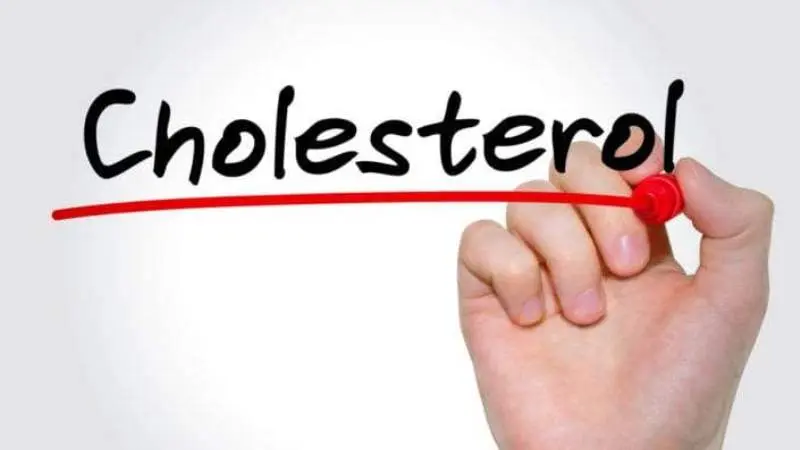
Cholesterol is a waxy, fat-like substance that is present in all cells of the body and has several important functions, including being a structural component of cell membranes, contributing to the production of hormones, and assisting in the synthesis of vitamin D.
However, when its concentration in the bloodstream becomes too high, it can lead to health problems, most notably cardiovascular disease. This article provides a comprehensive look at what causes high cholesterol, the related health risks, and strategies for prevention and management.
1 . The Different Types of Cholesterol
Before delving into the causes of high cholesterol, it’s important to understand the different types of cholesterol:
- Low-Density Lipoprotein (LDL) Cholesterol: Often referred to as “bad cholesterol,” LDL carries cholesterol particles throughout the body. High levels of LDL cholesterol can lead to cholesterol buildup in the arteries, causing them to narrow and harden, a condition known as atherosclerosis.
- High-Density Lipoprotein (HDL) Cholesterol: Known as “good cholesterol,” HDL carries cholesterol from other parts of the body back to the liver, which then removes the cholesterol from the body
- Triglycerides: When you consume more calories than your body needs, especially from sugars and fats, your body converts the excess into triglycerides and stores them in fat cells. High triglyceride levels combined with high LDL or low HDL cholesterol can increase heart disease risks.
2. Causes of High Cholesterol
High cholesterol can be caused by a variety of factors, many of which are modifiable:
- Diet: These include fatty cuts of meat, full-fat dairy products, deep-fried and processed foods, certain baked goods, and certain types of oils.
- Obesity: Having a body mass index (BMI) of 30 or greater can increase LDL cholesterol levels and decrease HDL cholesterol levels, thus raising your total cholesterol levels.
- Lack of Physical Activity: Regular physical activity can help raise HDL cholesterol and lower LDL cholesterol and triglycerides. Lack of exercise, therefore, can contribute to weight gain and higher cholesterol levels.
- Smoking: Smoking damages the walls of blood vessels, making them more prone to accumulate fatty deposits. It also lowers levels of HDL cholesterol, leading to higher overall cholesterol levels.
- Age and Sex: As you age, your liver becomes less able to remove LDL cholesterol. Furthermore, women’s LDL levels often increase after menopause.
- Genetics: High cholesterol can also be inherited. Familial hypercholesterolemia is a form of inherited high cholesterol that can lead to aggressively high levels of LDL cholesterol and early heart disease.
- Underlying Health Conditions: Certain medical conditions, such as diabetes, kidney disease, polycystic ovary syndrome, and hypothyroidism, can also raise cholesterol levels.
3. Health Risks Associated with High Cholesterol
High cholesterol can lead to the development of atherosclerosis, a process where cholesterol and other substances accumulate on the artery walls, leading to the formation of hard structures called plaques. These plaques can narrow the arteries and make them less flexible, a condition known as coronary artery disease.
If a clot forms and blocks a narrowed artery, a heart attack or stroke can occur. If a clot blocks an artery in the legs, it can lead to peripheral artery disease, characterized by pain during walking, a condition known as claudication.
4. Prevention and Management
Preventing and managing high cholesterol typically involves lifestyle modifications:
- Healthy Eating: A heart-healthy diet can help lower cholesterol levels.
- Regular Exercise: Aim for at least 30 minutes of exercise most days of the week.
- Weight Management: Losing excess weight can improve cholesterol levels.
- Avoid Tobacco Smoke and Limit Alcohol: These substances can raise cholesterol levels and damage your heart.
- Regular Checkups: Regular cholesterol screenings can help detect high cholesterol early, even before it causes symptoms.
In some cases, lifestyle changes may not be enough, and cholesterol-lowering medications may be necessary.
Conclusion
High cholesterol, particularly high LDL and low HDL, poses a significant risk for heart disease and stroke. Many factors, including diet, lifestyle, age, sex, genetics, and underlying health conditions, can contribute to high cholesterol levels.
Through healthy lifestyle habits and regular medical checkups, it’s possible to prevent and manage high cholesterol effectively, promoting overall cardiovascular health.


